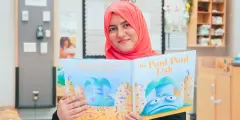Infants to tweens: Working in early learning vs. school age programs at the YMCA
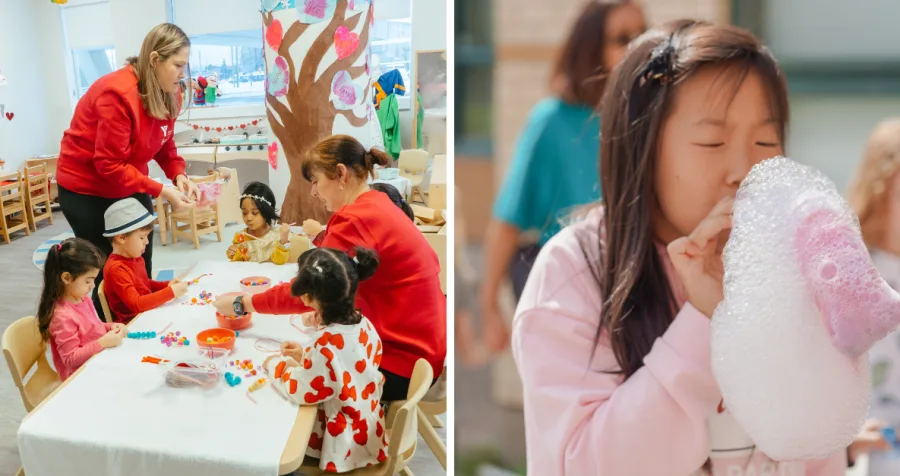
As an aspiring YMCA educator, you want to help children shine. But do you know what age group you’d like to work with? Whether you picture yourself helping a toddler explore the world or guiding a school-age child after class, you are making a difference every day.
We offer YMCA Licensed Child Care programs for two age groups: Early learning (infants, toddlers, and preschoolers) and school age (Before and After School programs for children ages 4 to 12).
Working with both age groups is meaningful, but the daily experience is different. Here’s an overview of what it’s like to work in early learning versus school age programs at the YMCA.
Outdoor play
In early learning care, educators take children outside every day. They carry an infant in a sling or push a group stroller, or walk with toddlers and preschoolers to the playground beside the child care centre. They watch how each child explores climbing, sliding, digging, sharing toys, and more.
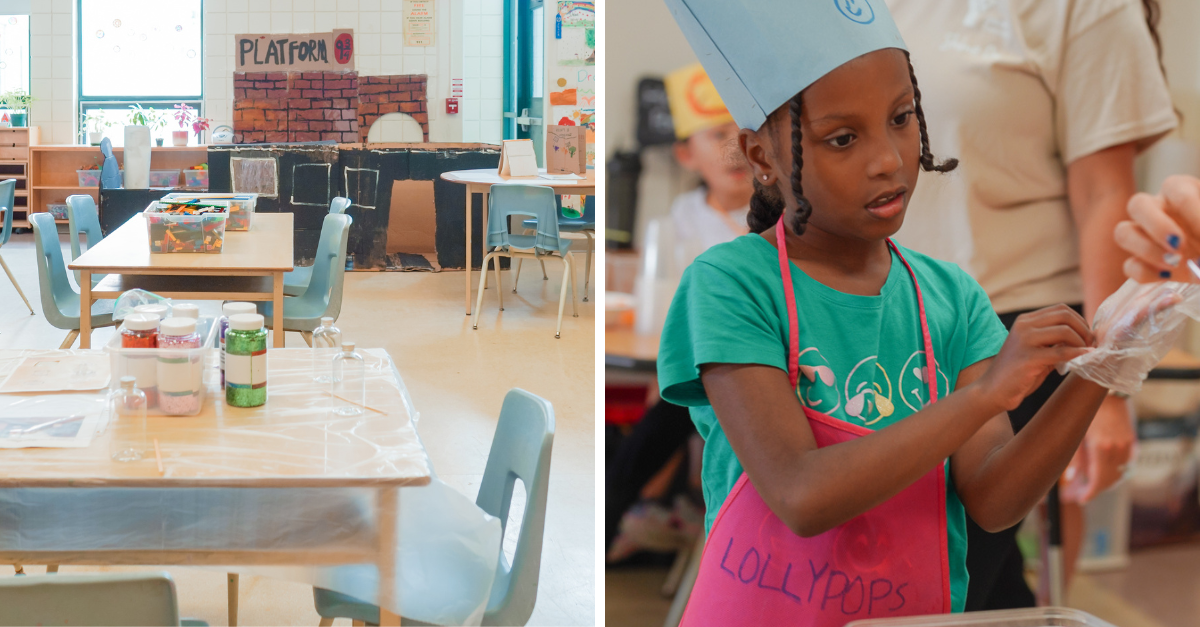
In school age programs, educators help children decide how to spend their time outside. One group might start a soccer game, another might make bubbles or draw with chalk, and some children might prefer to chat and toss a ball with you. Every day brings something new.
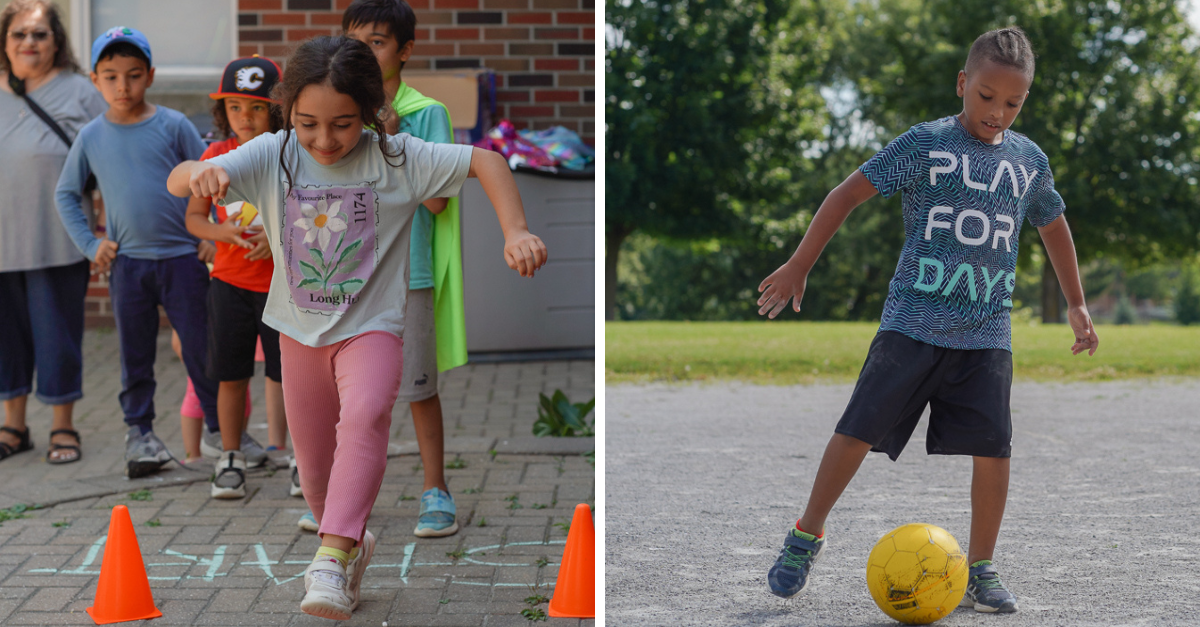
Relationships, support, and personalities
In early learning care, educators spend a lot of their day observing and supporting children learning to speak, move, and express feelings. They might help a toddler use scissors for the first time or guide a preschooler in finding the right words to join a game. They also comfort children who miss their parents, offering a familiar voice and a safe space.
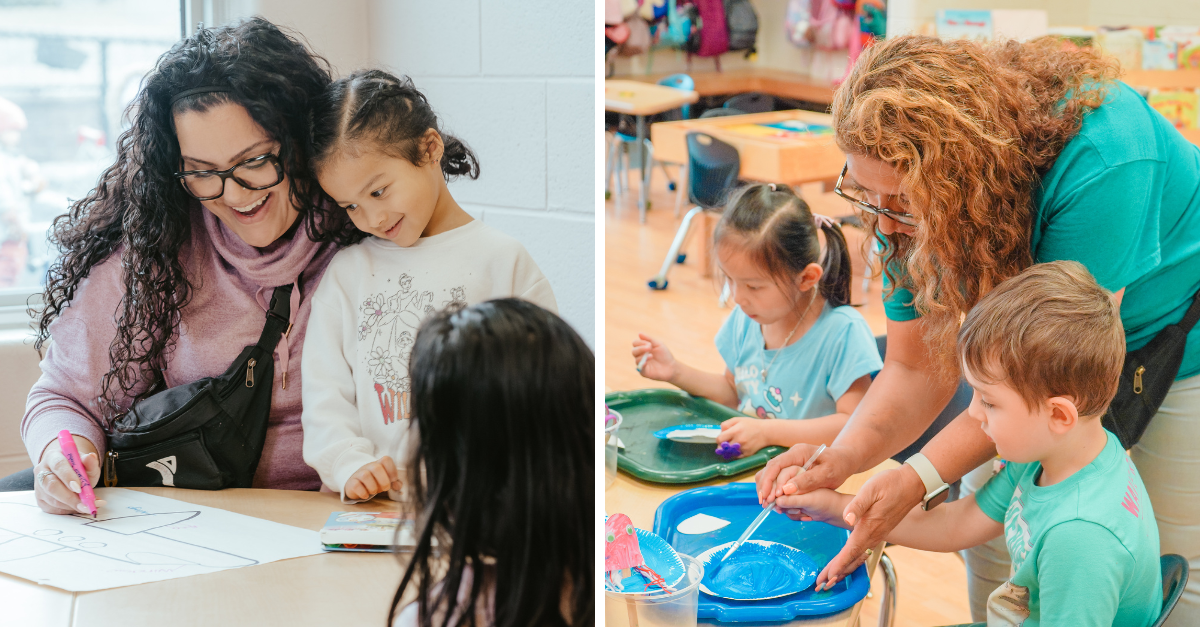
In school age programs, educators help children navigate friendships, solve small disagreements, and try new activities. They get to know children’s personalities, preferences, friendships, and after-school energy. One child might tell you about something that happened in class, while another might show you a project they started at home.
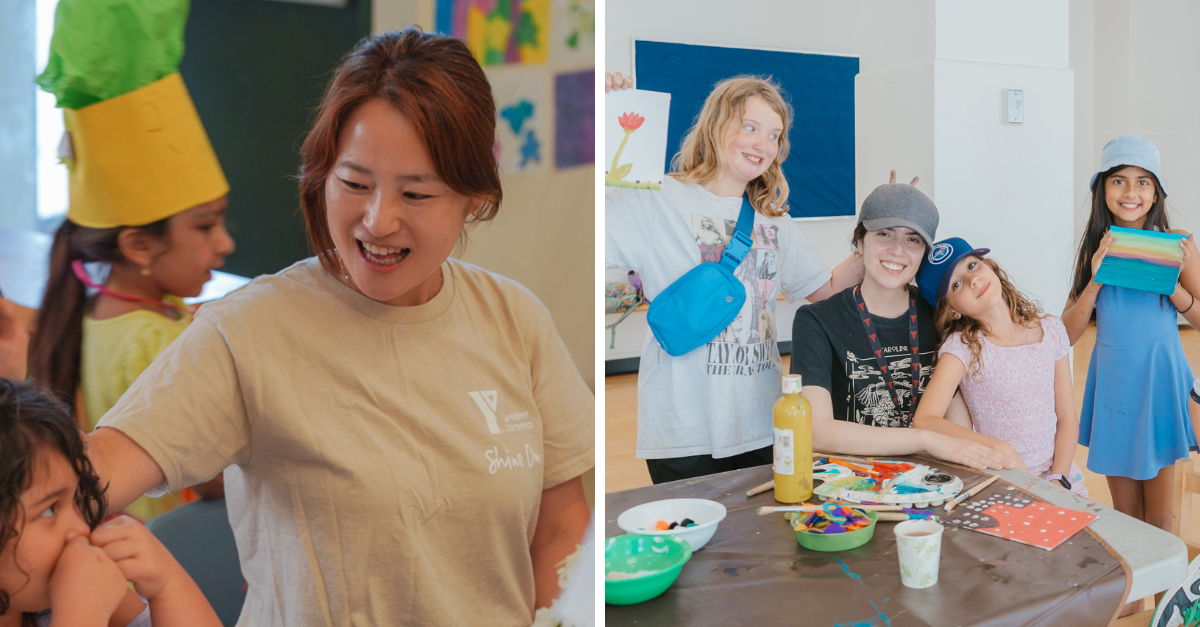
Daily schedule
In early learning care, educators work full days from Monday to Friday. The day moves through a routine of drop-off, play, meals, nap time, outdoor time, and pickup. Activities align with children’s interests, like stacking blocks, pouring water at a sensory table, and counting the butterflies outside the window.
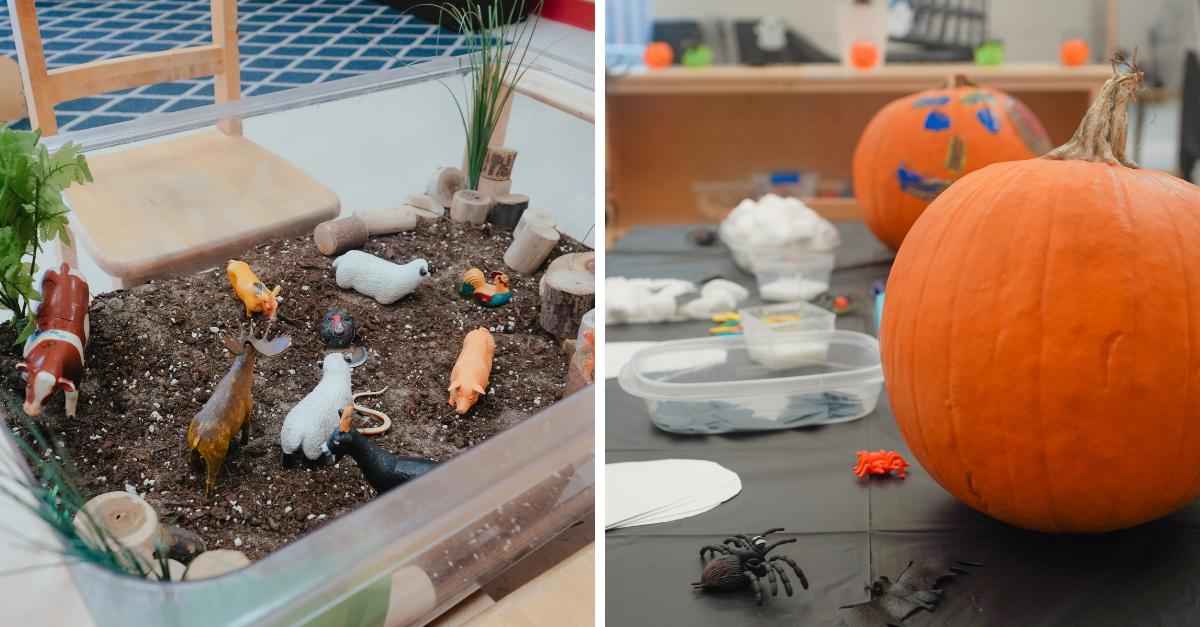
In school age programs, educators work split shifts, often 7:30 am to 9:15 am and 3:30 pm to 6:30 pm. Mornings are short and focused, with quiet activities or group games before school starts. Afternoons are more relaxed, with snacks, crafts, sports, and time to unwind with friends.
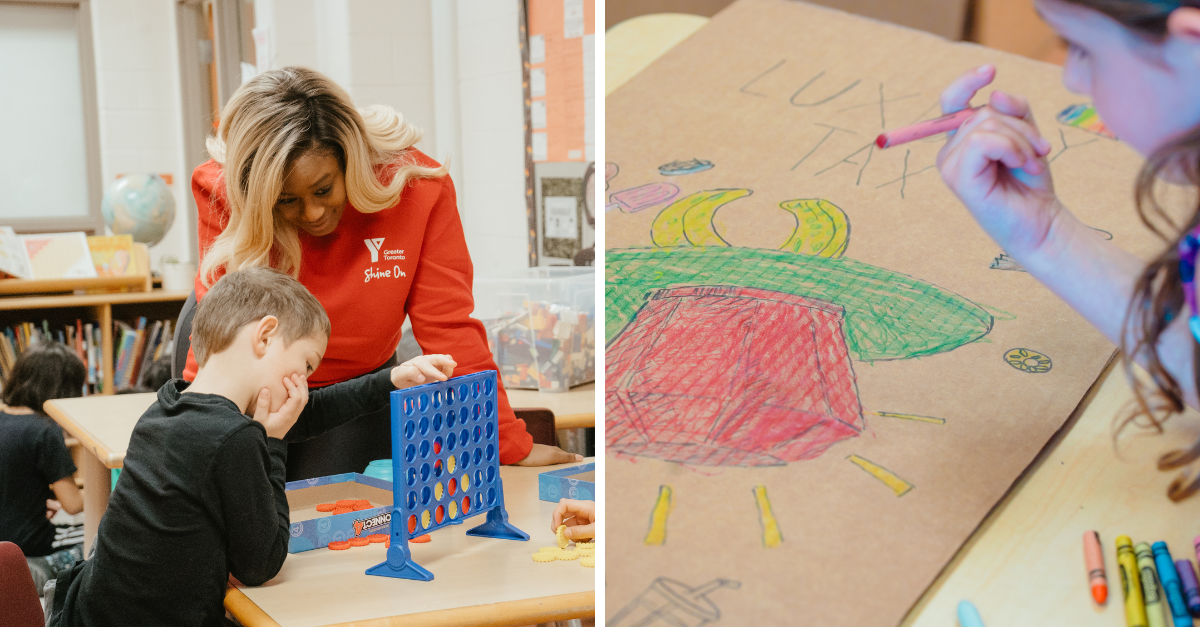
Program planning and curriculum
In early learning care, educators use their observations to plan the next day’s curriculum-based activities. Our curriculum for early learning is YMCA Playing to Learn™. A toddler pointing at a ladybug might inspire you to set up a nature table with magnifying glasses and books.
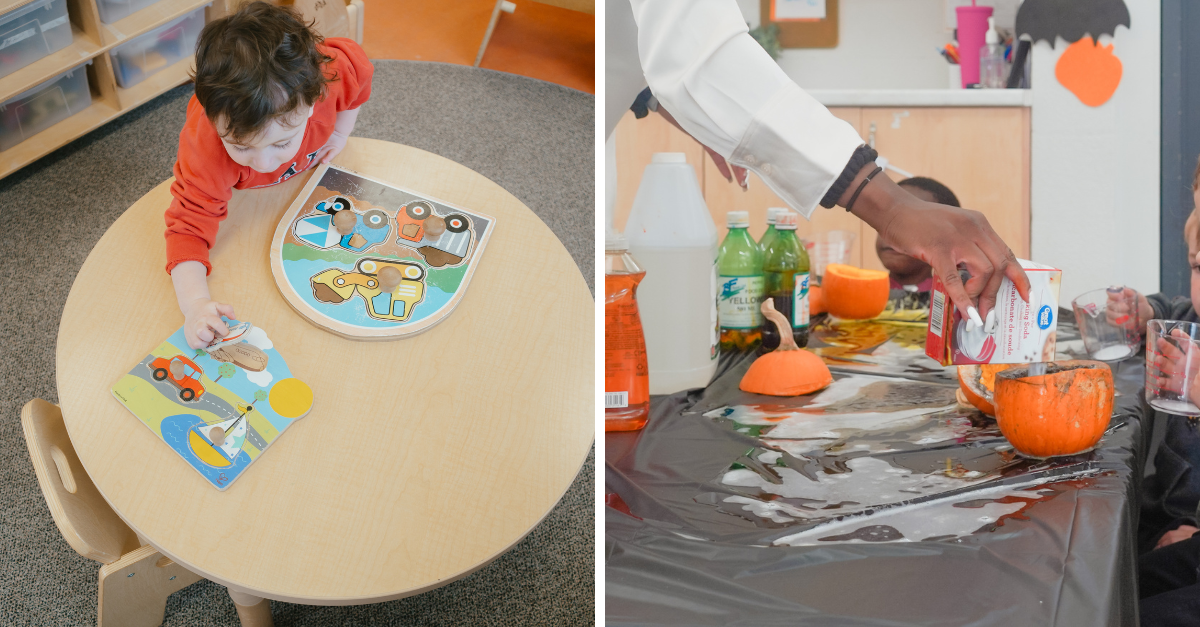
For infants who may not be pointing or talking yet, educators focus on activities that engage their senses and hands. This could include sensory play that supports gross and fine motor skills, such as a sealed sandwich bag filled with blue gel and small toy fish for them to press and explore.
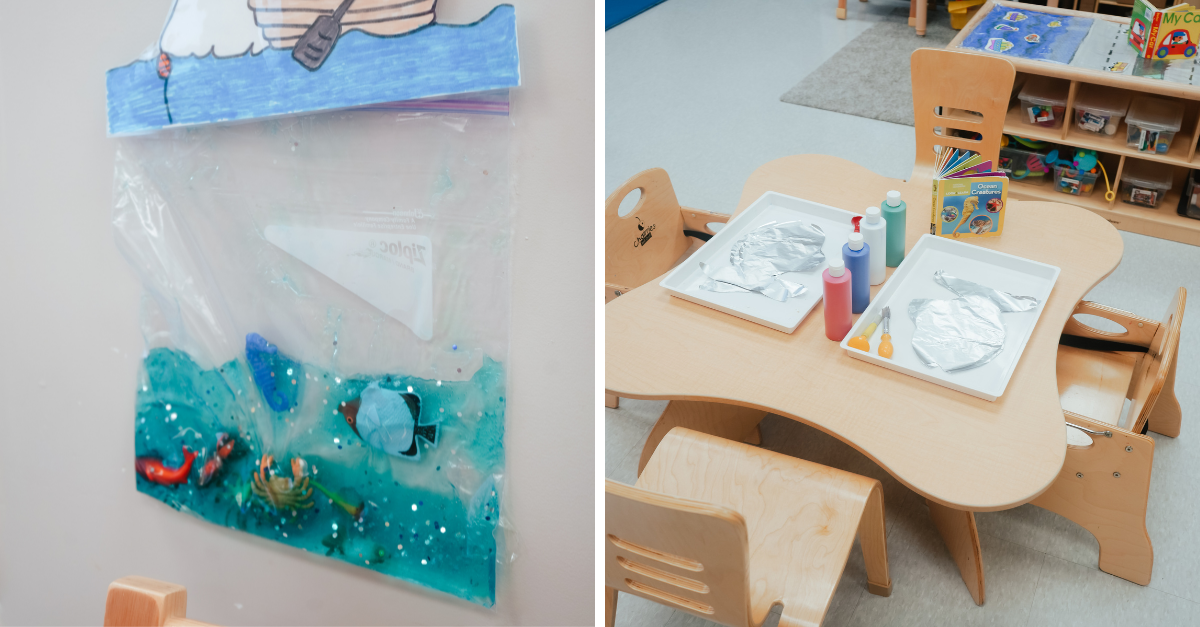
Educators document each child’s growth in Weemarkable™, the Y’s child care app that helps families follow their child’s learning and progress.
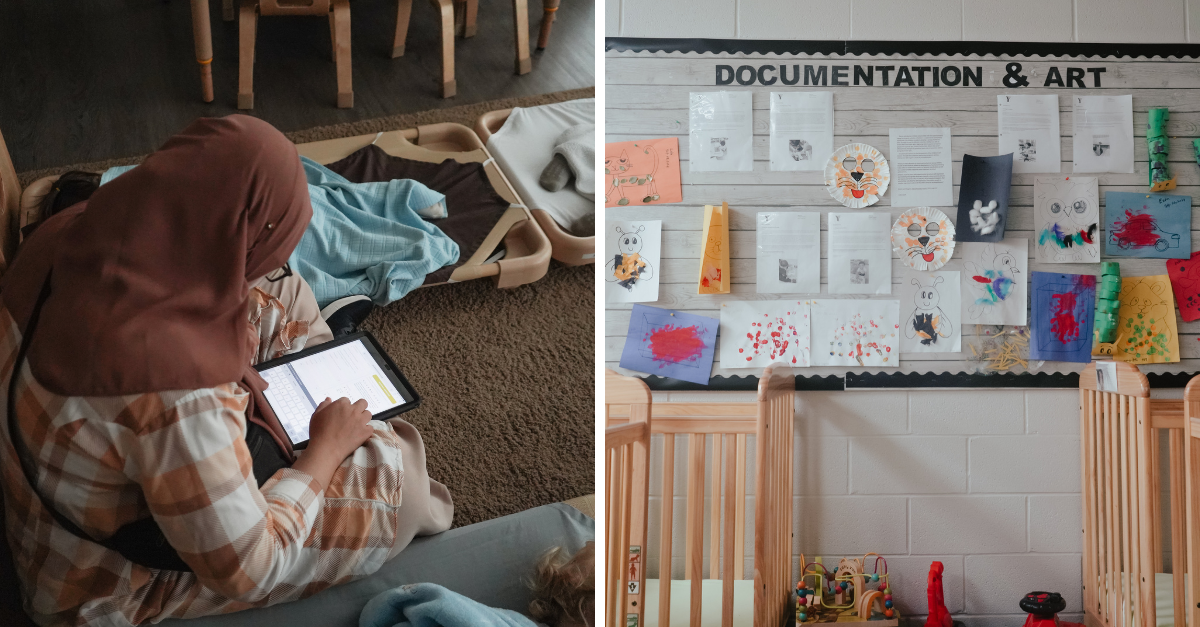
In school age programs, ideas often come straight from the children. They might want to try an art project they saw online, start a chess club, or build a fort. Educators work with them to make it happen, adding their own ideas to keep it safe and engaging, while implementing the A Place to Connect™ curriculum.
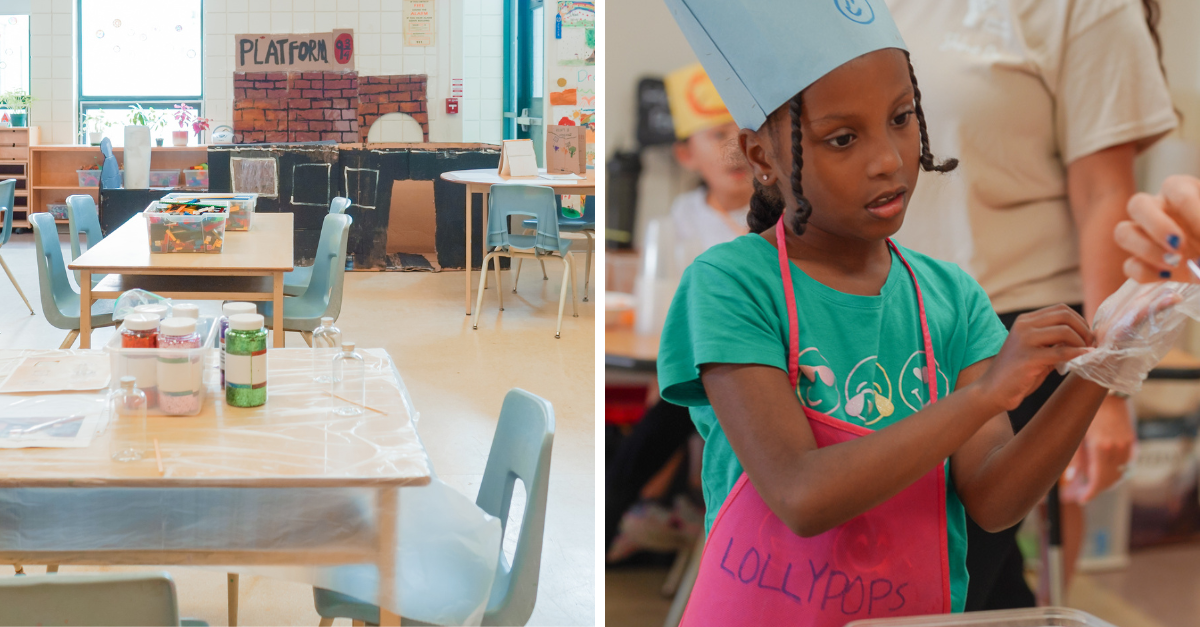
Group size and space
In early learning care, the groups are small, with often one educator for every three to eight children, depending on age. The classroom is set up with developmental areas for sensory play, reading, building, dramatic play, and resting. Educators and children spend every day in the same familiar space.
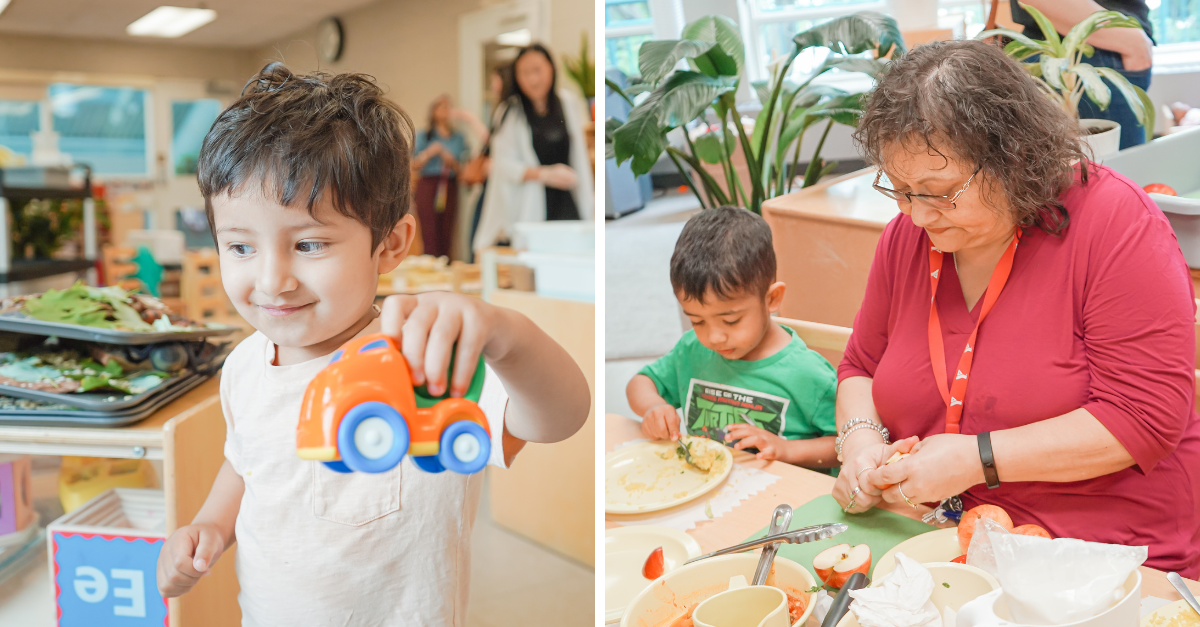
In school age programs, educators work with larger groups in spaces like school gyms, classrooms, or shared community rooms. Every space is different, so you adapt quickly and create a welcoming, fun environment wherever you are.
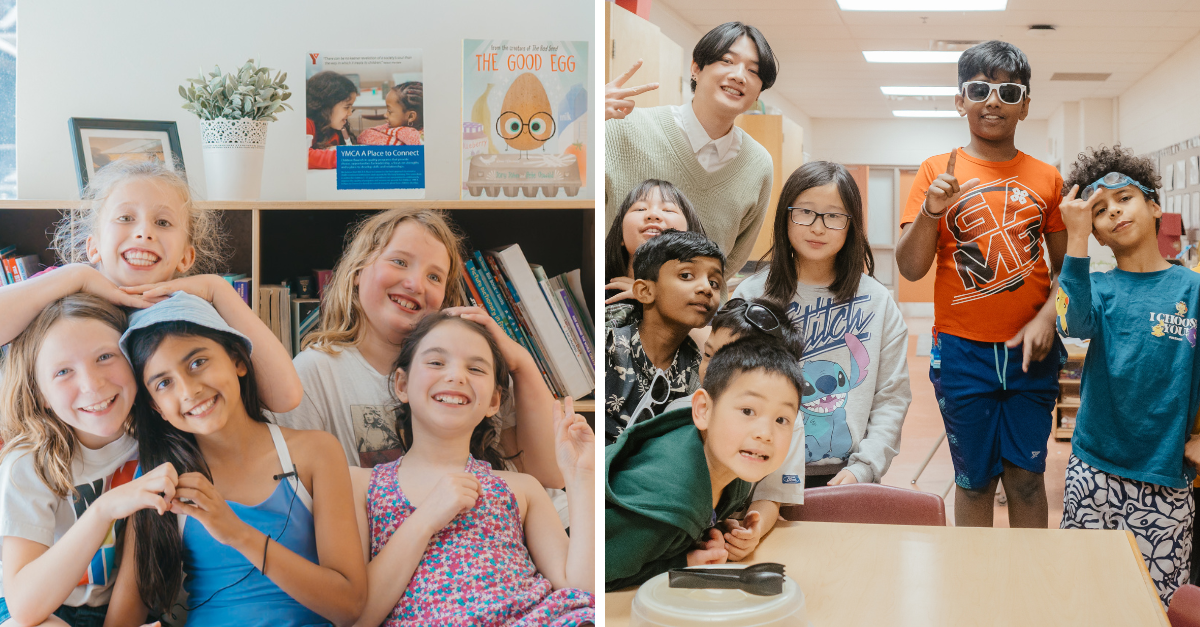
Drop-off, pickup, and safety
In early learning care, educators greet families at the door each morning and share highlights from the day at pickup. These daily check-ins help build strong relationships with parents and caregivers.
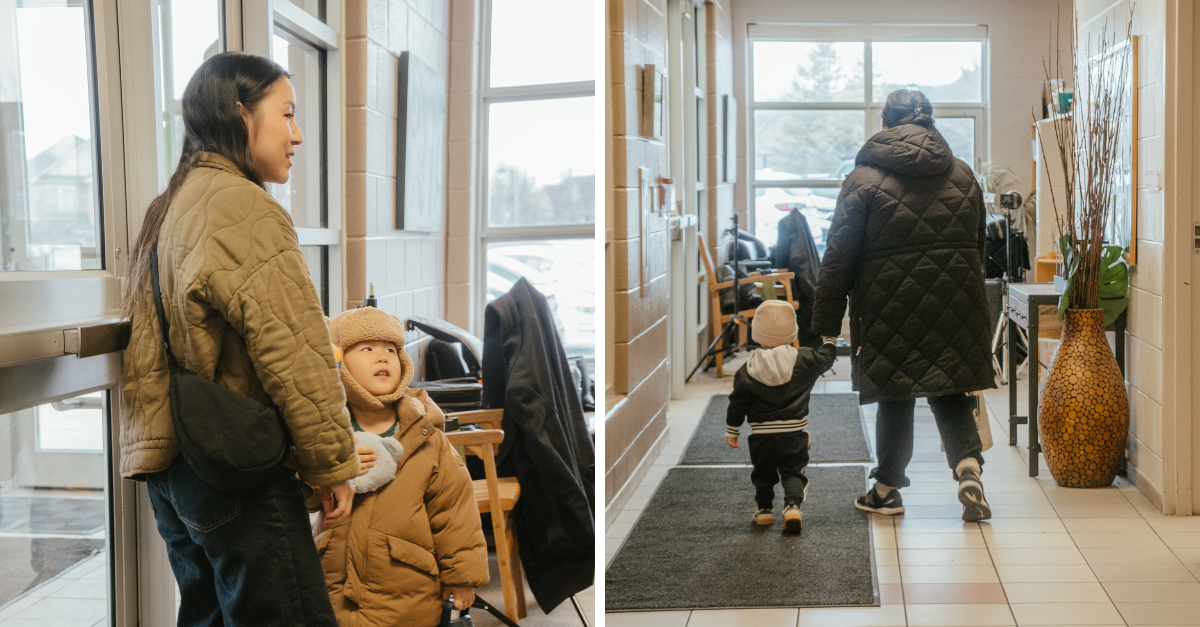
In school age programs, guardians drop off children in the morning for before school care. For after school care, some children walk from their classrooms to the YMCA program space, while an educator might pick up others. Families pick up their child at the end of the program.
In both early learning and school age programs, educators follow the YMCA Safe Arrival Policy to ensure every child is safe and accounted for.
Two roles, one purpose
Choosing between working in early learning or school age programs at the YMCA is about finding the environment where you can shine. You might prefer the steady routines and close bonds in early learning care, or you might thrive on the variety and energy of school age programs.
Whichever you choose, you will be part of a caring team that helps children grow, learn, and belong.
Explore current YMCA child care job openings and find your fit.

